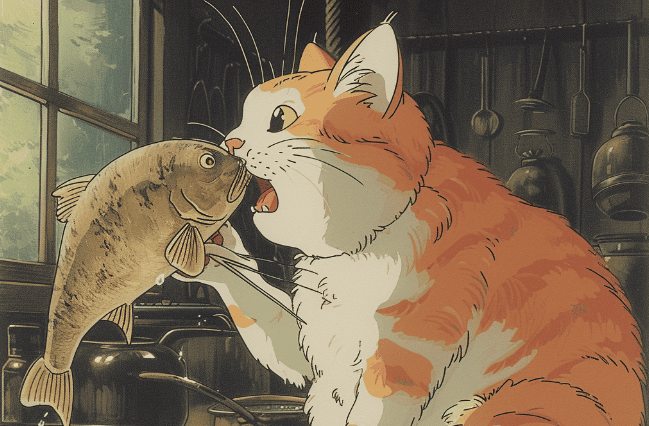Causes why cats become obese
Overfeeding: If you provide your cat with too much food that exceeds its energy consumption, it will easily lead to weight gain.
Lack of exercise: Lack of adequate exercise will cause your cat to consume less energy and gain weight.
Improper diet: An unbalanced diet or too many energy-dense foods may also lead to weight gain.
Illness or physical problems: Some health problems, such as thyroid problems or diabetes, can cause cats to gain weight.
After neutering surgery: After neutering surgery, some cats tend to gain weight due to metabolic changes.

Diseases that may be caused by cats that are too fat< /p>
Diabetes: Overweight cats are more likely to develop diabetes because the insulin in their bodies may not be able to process blood sugar effectively.
Joint problems: Being overweight can increase the burden on your cat’s joints, leading to arthritis and other bone problems.
Cardiovascular disease: Overweight cats may be at risk for cardiovascular problems such as high blood pressure and heart disease.
Difficulty breathing: Being overweight may cause cats to have difficulty breathing, especially during exercise or strenuous activities.
Skin Problems: Overweight cats may have difficulty cleaning their coats, increasing the risk of skin infections and other skin problems.
Liver problems: Excessive fat accumulation may put a burden on your cat’s liver, leading to problems such as fatty liver.
Reproductive system problems: Female cats may face fertility difficulties or other reproductive system problems.
5 Ways for Cats to Lose Weight
Cats need to consider diet, exercise and health status to lose weight. Here are some suggestions:
Gradually reduce your daily food intake: Gradually reduce your daily food intake rather than making a sudden drastic reduction. This helps your cat adjust to the new diet plan.
Try to choose low-fat and low-carbohydrate foods (eat more meat): including appropriate food types and daily food amounts. Consider using a specially designed low-calorie cat food to help with weight management.
Regular and quantitative feeding, frequent meals and small meals: ensure not to overfeed. Feeding several times a day, rather than overfeeding all at once, can help control your cat's appetite.
Limit snack feeding: Try to avoid giving your cat too many snacks, as they may be high in calories and fat.
Enhance cat interaction: Make sure your cat gets enough exercise. Use toys, games and interactions to encourage activity and promote the use of excess energy.

Cat weight standard test
Use a scale: Place your cat on a professional pet scale to ensure the scale is accurate. This allows you to directly measure your cat's weight.
Regular measurement: For adult cats, it is best to measure their weight once a month. For kittens or older cats, more frequent monitoring may be needed.
Record weight: Record each weight measurement so that you can track your cat's weight changes.
Weight Assessment: Compare the measured weight to the standard weight range for the cat's breed, age and sex.
Observe the body shape: In addition to the weight, the cat’s body shape should also be observed. A healthy cat should have a moderate body and a well-set waist.
Pay attention to other health indicators: In addition to weight, pay attention to the cat's overall health, including the luster of the coat, activity level, appetite, etc.

 扫一扫微信交流
扫一扫微信交流
发布评论